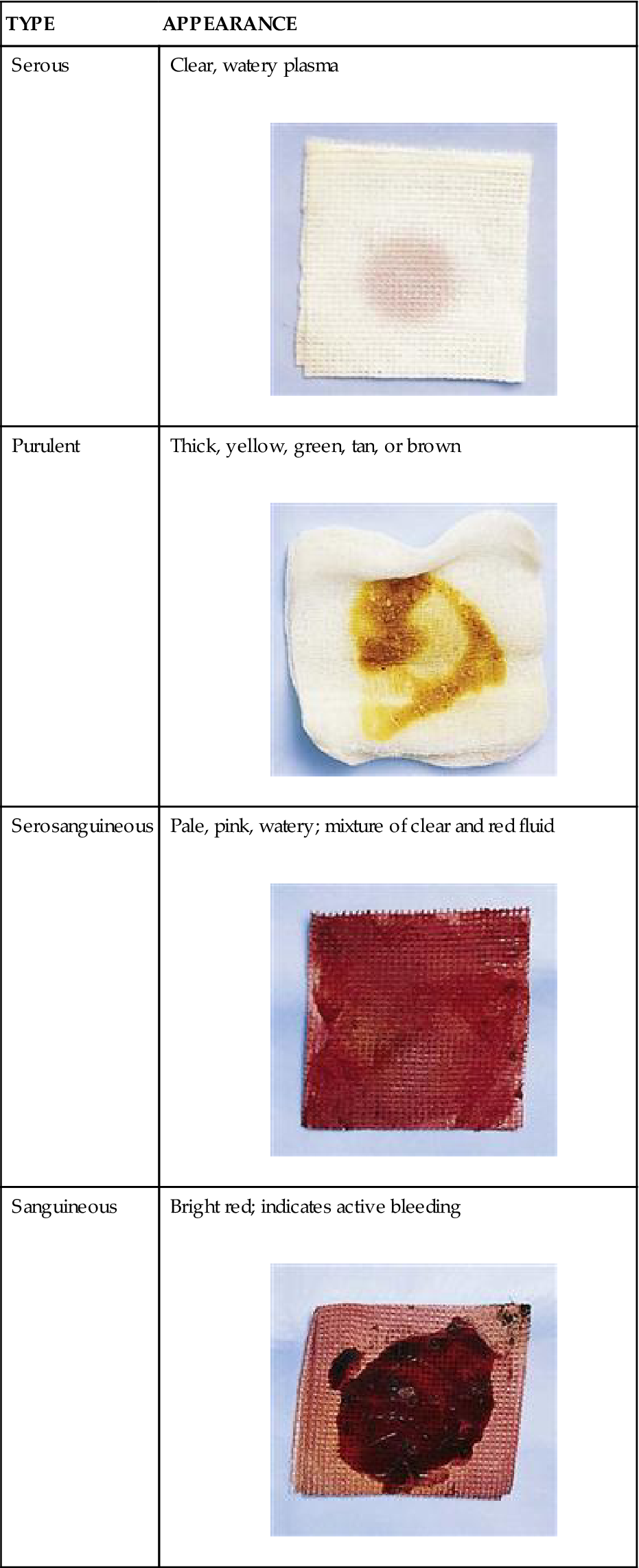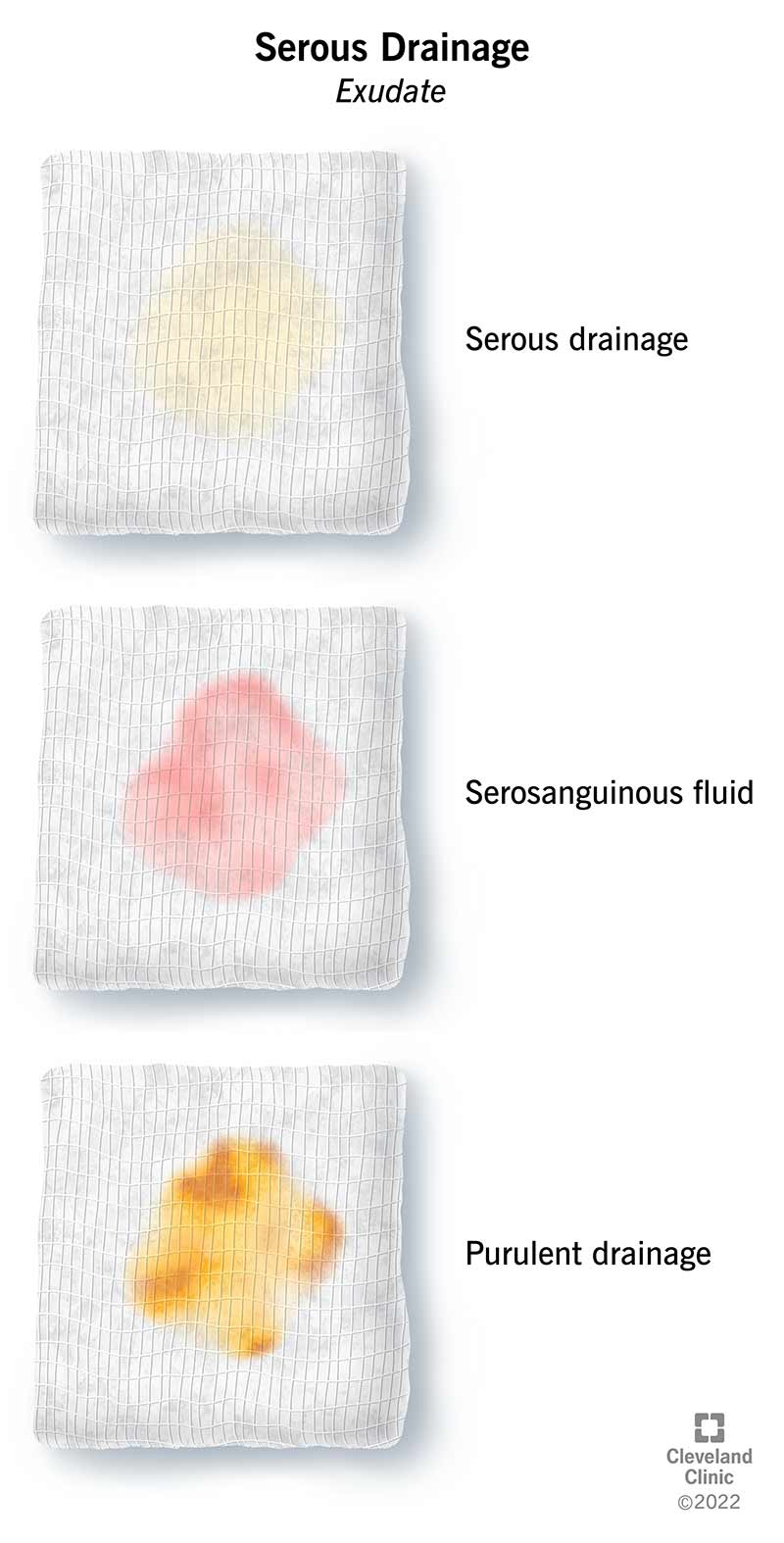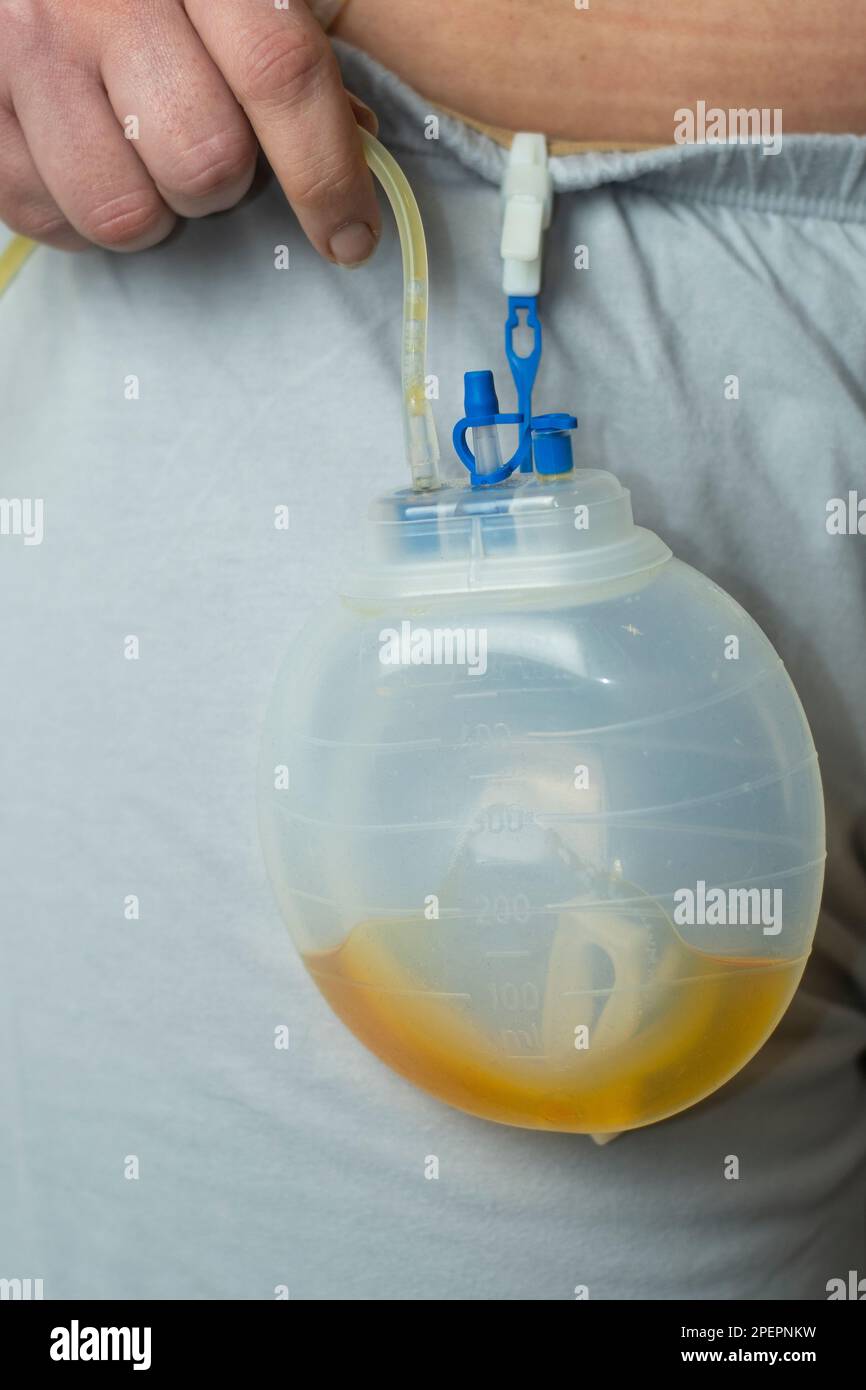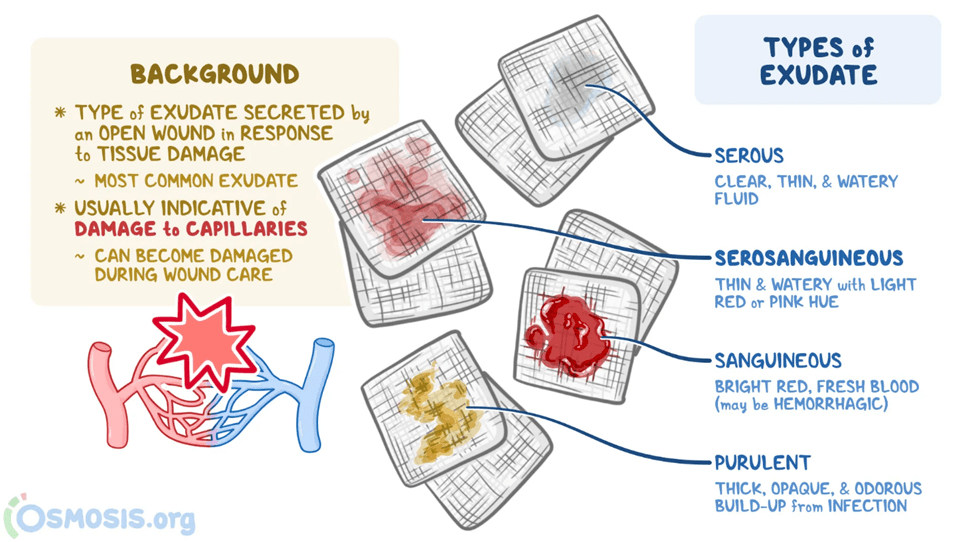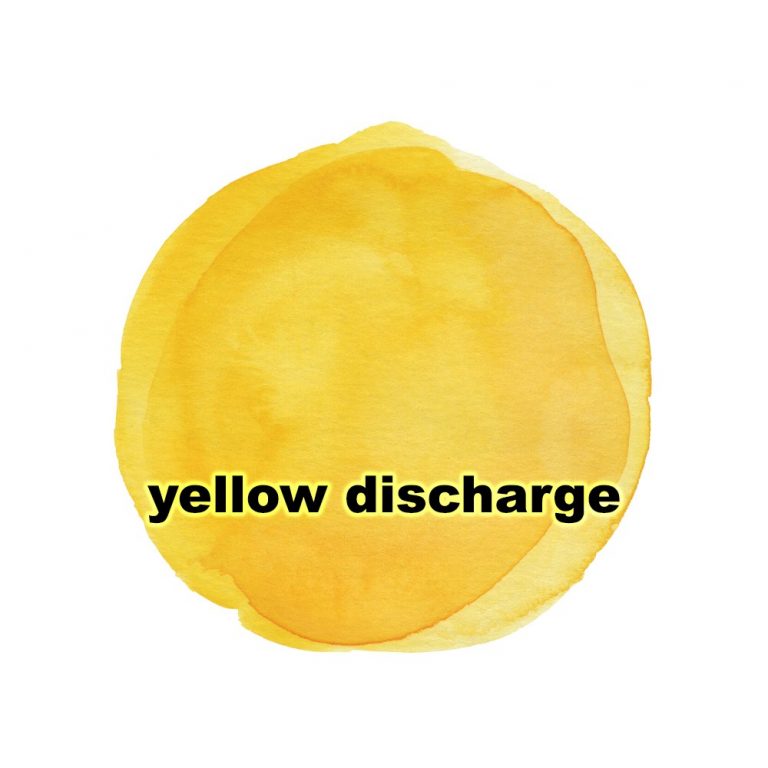Yellow Discharge From Wound - This type of wound drainage is a. Serous drainage is a clear to yellow fluid that leaks out of a wound. It usually means you have infection, so it’s important to get prompt medical care. It’s slightly thicker than water. Purulent discharge, which is a thick, white, yellow, or brown fluid coming from the wound, is a sign of infection and should not be ignored. This usually appears as a thin, often slightly yellow fluid that’s mostly water,. These factors will guide the nurse in determining whether the. Purulent drainage refers to thick, milky discharge that comes out of a wound. When examining wound drainage, several factors should be considered, including the color, consistency, amount, and odor. It’s the fluid that makes your bandage look and feel wet.
These factors will guide the nurse in determining whether the. It usually means you have infection, so it’s important to get prompt medical care. It’s the fluid that makes your bandage look and feel wet. Purulent drainage refers to thick, milky discharge that comes out of a wound. This type of wound drainage is a. Serosanguineous drainage is the normal discharge of fluid from a wound or incision site after surgery. It’s slightly thicker than water. Serous drainage is a clear to yellow fluid that leaks out of a wound. Purulent discharge, which is a thick, white, yellow, or brown fluid coming from the wound, is a sign of infection and should not be ignored. This usually appears as a thin, often slightly yellow fluid that’s mostly water,.
When examining wound drainage, several factors should be considered, including the color, consistency, amount, and odor. It’s slightly thicker than water. This type of wound drainage is a. These factors will guide the nurse in determining whether the. Purulent discharge, which is a thick, white, yellow, or brown fluid coming from the wound, is a sign of infection and should not be ignored. Purulent drainage refers to thick, milky discharge that comes out of a wound. This usually appears as a thin, often slightly yellow fluid that’s mostly water,. Serous drainage is a clear to yellow fluid that leaks out of a wound. It’s the fluid that makes your bandage look and feel wet. Serosanguineous drainage is the normal discharge of fluid from a wound or incision site after surgery.
Skin Integrity and Wound Care Nurse Key
Purulent drainage refers to thick, milky discharge that comes out of a wound. This usually appears as a thin, often slightly yellow fluid that’s mostly water,. Serosanguineous drainage is the normal discharge of fluid from a wound or incision site after surgery. It’s slightly thicker than water. Serous drainage is a clear to yellow fluid that leaks out of a.
Infected Wound
When examining wound drainage, several factors should be considered, including the color, consistency, amount, and odor. This type of wound drainage is a. Serous drainage is a clear to yellow fluid that leaks out of a wound. Purulent discharge, which is a thick, white, yellow, or brown fluid coming from the wound, is a sign of infection and should not.
Figure 4 from Wound exudate and the role of dressings. A consensus
When examining wound drainage, several factors should be considered, including the color, consistency, amount, and odor. These factors will guide the nurse in determining whether the. This usually appears as a thin, often slightly yellow fluid that’s mostly water,. Purulent discharge, which is a thick, white, yellow, or brown fluid coming from the wound, is a sign of infection and.
What Is Yellow Drainage From Wound at Mildred Lesley blog
This type of wound drainage is a. Serous drainage is a clear to yellow fluid that leaks out of a wound. Purulent drainage refers to thick, milky discharge that comes out of a wound. It usually means you have infection, so it’s important to get prompt medical care. It’s the fluid that makes your bandage look and feel wet.
Wound Drainage Color Chart
Serosanguineous drainage is the normal discharge of fluid from a wound or incision site after surgery. It’s the fluid that makes your bandage look and feel wet. It’s slightly thicker than water. Purulent discharge, which is a thick, white, yellow, or brown fluid coming from the wound, is a sign of infection and should not be ignored. This type of.
What Is Yellow Drainage From Wound at Mildred Lesley blog
These factors will guide the nurse in determining whether the. Serous drainage is a clear to yellow fluid that leaks out of a wound. It’s the fluid that makes your bandage look and feel wet. When examining wound drainage, several factors should be considered, including the color, consistency, amount, and odor. Purulent discharge, which is a thick, white, yellow, or.
Exudate Definition and Examples Biology Online Dictionary
This usually appears as a thin, often slightly yellow fluid that’s mostly water,. Serous drainage is a clear to yellow fluid that leaks out of a wound. Serosanguineous drainage is the normal discharge of fluid from a wound or incision site after surgery. It’s slightly thicker than water. When examining wound drainage, several factors should be considered, including the color,.
WOUND DRAINAGE! 1) Serous Clear, watery plasma 2) Purulent Thick
When examining wound drainage, several factors should be considered, including the color, consistency, amount, and odor. This usually appears as a thin, often slightly yellow fluid that’s mostly water,. Serosanguineous drainage is the normal discharge of fluid from a wound or incision site after surgery. It’s the fluid that makes your bandage look and feel wet. It’s slightly thicker than.
Wound Drainage Assessment
It’s slightly thicker than water. These factors will guide the nurse in determining whether the. Serous drainage is a clear to yellow fluid that leaks out of a wound. Serosanguineous drainage is the normal discharge of fluid from a wound or incision site after surgery. It usually means you have infection, so it’s important to get prompt medical care.
Yellow Discharge causes, types, anatomy, images
This usually appears as a thin, often slightly yellow fluid that’s mostly water,. Serosanguineous drainage is the normal discharge of fluid from a wound or incision site after surgery. Serous drainage is a clear to yellow fluid that leaks out of a wound. It’s the fluid that makes your bandage look and feel wet. It’s slightly thicker than water.
It’s The Fluid That Makes Your Bandage Look And Feel Wet.
Serosanguineous drainage is the normal discharge of fluid from a wound or incision site after surgery. These factors will guide the nurse in determining whether the. This usually appears as a thin, often slightly yellow fluid that’s mostly water,. It’s slightly thicker than water.
It Usually Means You Have Infection, So It’s Important To Get Prompt Medical Care.
Purulent discharge, which is a thick, white, yellow, or brown fluid coming from the wound, is a sign of infection and should not be ignored. When examining wound drainage, several factors should be considered, including the color, consistency, amount, and odor. This type of wound drainage is a. Purulent drainage refers to thick, milky discharge that comes out of a wound.
